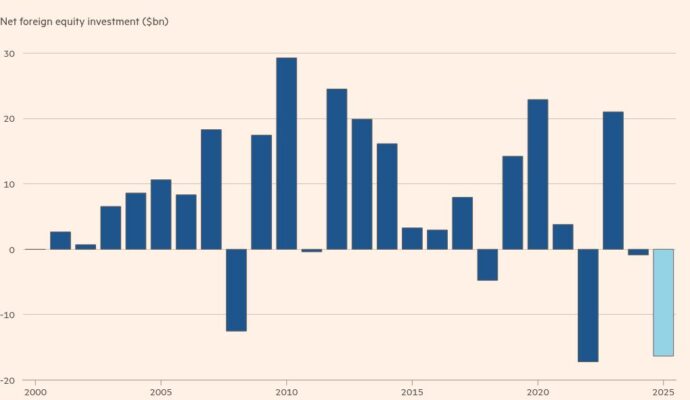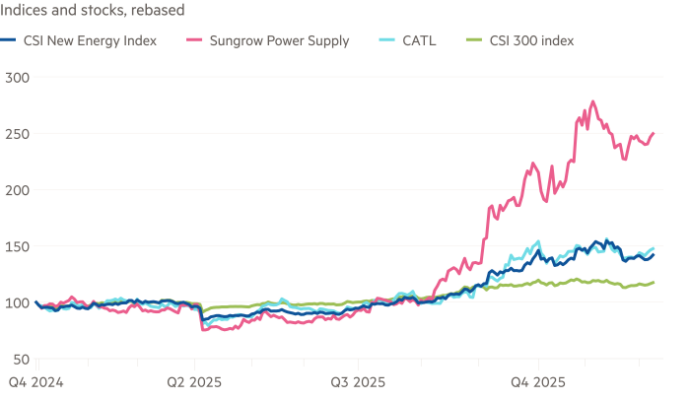Stay informed with free updates
Simply sign up to the Indian business & finance myFT Digest — delivered directly to your inbox.
The investment opportunity in India’s technology sector is akin to Silicon Valley in the 1990s or China in the 2000s, according to the founders of an Indian tech-focused hedge fund set to launch next year, as foreign capital shows signs of returning to the market.
India-based Panvira aims to raise $200mn in foreign capital to invest from January 2026 in the burgeoning tech sector of the world’s most populous country. The fund will focus on public rather than private markets to capitalise on a surge of initial public offerings amid sky-high valuations.
“If you want to participate in the value creation of a tech company between $2bn and $10bn in the US, you would have to go through [private equity], while in India that would be done through a public tech investor,” said Panvira co-founder Vaibhav Singh, who previously led Asian equities coverage at US hedge fund Coatue.
“India is a market where companies are choosing to go public earlier, and also choosing to go public domestically.”
Panvira’s plans highlight renewed interest among global asset managers in India after an economic downturn hit corporate earnings and sparked an exodus of foreign investors last year. The blue-chip Nifty 50 index is up about 4 per cent this year after retreating from a record high in September.
This week, BlackRock’s fund management joint venture with Jio Financial Services, owned by Asia’s wealthiest man Mukesh Ambani, received regulatory approval to begin operations, nearly two years after announcing the tie-up.
Sanlam, a South African financial services group, on Tuesday acquired a 23 per cent stake in Mumbai-based Shriram Asset Management. Carson Block’s hedge fund, Muddy Waters, is also looking to set up an investment vehicle in India.

Singh and his co-founder Akhil Chainwala compared India’s tech sector to Silicon Valley in the 1990s and especially to China in 2005, when giants such as Alibaba were still young and funds such as Hillhouse had just launched to connect the local market with outside capital.
“If you were Chinese abroad at a global investment firm . . . it was the moment to go back and build in China. I think we’re at a similar moment where it’s time to go and build in India,” said Singh, who noted that China’s GDP a head at the time was close to India’s figure today.
“We do feel that the opportunities in India are big. We feel not just in terms of the 2005 China moment but also the late ‘90s in the US.”
The fund — known as a “Tiger grand cub” because Singh’s previous fund, Coatue, was founded by an alumnus of the vaunted tech investment group Tiger Global — has the backing of global investors including a “prominent US institutional investor”, according to Panvira.
Foreign observers have warned that India’s equities have been pumped up by retail and pension savings. The average price-to-earnings ratio of the Nifty 50 is 22.7, compared with 23.3 for the S&P 500 index and 15 for China’s CSI 300.
Singh and Chainwala pushed back on the idea that Indian equities were overvalued, citing high GDP and corporate revenue growth compared with the US.
Panvira will be domiciled in Gift City, a special economic zone in Gujarat, Prime Minister Narendra Modi’s home state. The city has been luring financial institutions including HSBC and JPMorgan with tax exemptions and other incentives in the hope of creating a rival to Singapore and Dubai, popular hubs for offshore investment in India.
“India is a fairly high noise-to-signal ratio place. There is an edge, alpha, to being local,” said Singh, referring to the ability to find information that could contribute to investment decisions amid daily life.


